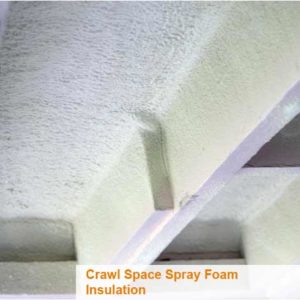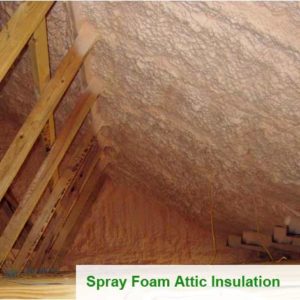What’s The Difference Between Open or Closed Spray Foam?
Take a look at this chart.
Properties |
Open Cell Spray Foam |
Closed Cell Spray Foam |
| Texture | spongy | hard, smooth |
| Cost | less expensive | more expensive |
| R-value | R-4 to R-4.3 per inch | R6 per inch |
| Moisture sealing? | absorbent | repellant |
What to Use Where
The water sealing properties of closed cell spray foam make it a perfect candidate for crawlspaces and other outdoor environments where it can repel moisture from the soil and prevent mildew, rot, and even termite infestations that might otherwise slip through floorboards.Open cell spray foam’s spongy, absorbent texture and lower cost makes it a perfect insulation attics and interior walls, especially in historic homes, which may be prone to water damage in the roof area. If your roof should happen to get a leak, the water passes through open cell insulation, alerting you to the problem before rot has a chance to set in. Likewise, open cell works well in spaces where it can be shaved to fit neatly underneath drywall.

A major cause of energy waste in most homes is the presence of air leaks. Research has shown that just plugging air leaks in your home can reduce your energy waste by up to ten percent or more. Spray foam insulation, which is sprayed directly into your wall, attic, or crawlspace areas, fills the little cracks and gaps it encounters as a liquid, but within just a few minutes, it transforms into a thick foam insulation, sealing cavities and preventing air loss.
Reduced energy loss means lower utility bills, and spray foam does more than just seal leaks. Spray foam also insulates. The dense, even texture of spray foam insulation creates a consistent temperature throughout your home; that means your HVAC system doesn’t have to work as hard during extreme weather. It’s easy to imagine the savings you’ll see when you seal leaks and reduce temperature fluctuations if you consider the fact that 45% to 55% of the energy used in the average homeowner’s residence goes to heating and cooling.
Spray foam insulation also prevents moisture buildup, decreasing your home’s humidity.
The trouble for most homeowners is that spray foam comes in two basic varieties: open cell spray foam and closed cell spray foam. How do you know which to choose? Easy. Each has special qualities that make it ideal for certain circumstances.
If you’re ready for an insulation renovation, give Sunlight Contractors a call. We’ll help you figure out what you need to cut your home’s energy waste, save money on your utility bill, and improve the air quality of your home.
Locations:
Main Office: Sunlight Contractors, LLC 2323 Bainbridge St #110, Kenner, LA 70062 (504) 919-9993
New Orleans location: Sunlight Contractors, LLC 650 Poydras St, Suite 1400, Rm 33, New Orleans, LA 70130 (504) 302-0058
